Mikhail Lermontov. Combat officer. Part of 4
The starving population was much more willing to go to the army. In addition, a ban on trade with the Russians was introduced, which caused even more hunger.
In Chechnya itself and the neighboring lands, Shamil was able to gather an army, which included representatives of almost all tribes, kindred peoples and Caucasian societies of the region. Now even his political weight has grown, because he could, using the Murids recruited from different places, be called the ruler of these tribes and societies, at least in a purely populist sense. More and more villages, voluntarily or involuntarily, took the Shamil murids in themselves, looking at what status people from their village acquired next to the imam.
Taking into account the seriousness of the situation, General Pavel Khristoforovich Grabbe, commander of the troops of the Caucasian line and in the Black Sea coast, personally arrived in Grozny in October 1940. In the fortress, he assumed command of the Galafeev detachment, which, according to Grabbe, was not effective enough. For the sake of truth, it is worth noting that the honored general Galafeev in fact did not undertake major campaigns deep into the "Imamat Shamil", fearing to lose soldiers in the completely unknown lands.
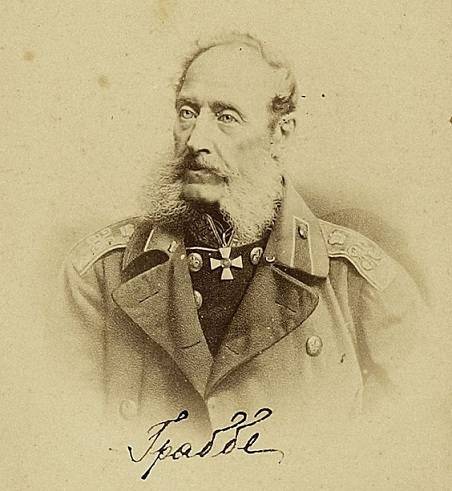
Pavel Khristoforovich Grabbe
In October, 40, when Grabbe was preparing a new expedition, Lermontov wrote to Alexey Alexandrovich Lopukhin (given in abbreviation):
Shortly after this modest message, Lieutenant Mikhail Yuryevich and his “hunters” were seconded to the cavalry under the command of Prince Golitsyn, who was part of the new expeditionary force. By October 27, the detachment prepared for the march by Pavel Khristoforovich entered the Small Chechnya. Here it is necessary to clarify a little: the concepts of Big Chechnya and Small Chechnya are often found in pre-revolutionary sources. In fact, Big Chechnya is the areas located along the right bank of the Argun River up to Aksai, and Small Chechnya is a region of the left bank of Argun, including the mountainous part and the Nadterechny district. Although it is very vague boundaries.
Grabbe decided to completely do away with the rebellious auls, which provided, again, voluntarily or gradually, support for Shamil. Therefore, having passed through the Goyta and Geghin forests already familiar to Valerik, the detachment took by storm and destroyed the household and residential buildings in the villages that survived after Galafeev.
Prince Vladimir Sergeevich Golitsyn, commander of the cavalry on that expedition, was also a friend of Lermontov. True, later they had a tiff. According to one version, because of the ladies, as often happens. According to another version, during the organization of a public ball for the local community in Pyatigorsk, Golitsyn dropped the phrase “it is necessary to teach the local savages”. Naturally, Lermontov, the commander of the detachment, partly consisting of these same "savages", could not keep silent. However, the officer Mikhail Yuryevich Golitsyn always spoke with great respect.
Here is what Vladimir Sergeevich wrote, recalling that expedition:
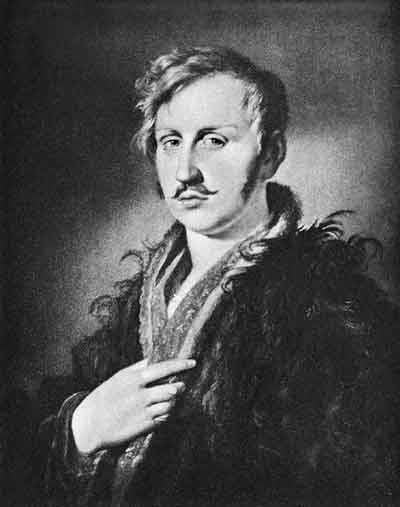
Vladimir Sergeevich Golitsyn
From the very first days of the expedition, Mikhail Yuryevich literally stormed into the war. On the way of the 27 squad of October, Aldy aul got up. As soon as the population of the rebellious village noticed the troops, a hasty retreat began, but the Murids who lived there were not going to just shyly leave their homes. For a retreating persecuted cattle, i.e. provisions for the rebel troops. First, the “Lermontov detachment”, apparently out of habit acting in front of the main troops, cut off the flocks from the population of the village. When the rebels remembered the lost property, they rushed into the forest thicket, hoping that the “hunters” would not follow them. But Lermontov with his detachment attacked the forest, entering into a desperate hand-to-hand fight, which turned into a rapid flight of the surviving murids.
October 28 on the horizon appeared Goytin forest, i.e. natural obstacle, which with high probability could be strengthened by the enemy in order to create ambushes and all sorts of traps. Unpleasant expectations justified the hunting team of Lieutenant Lermontov. They first entered the forest and found the obstructions expected by the command. Instead of hitting “in the forehead,” Mikhail Yuryevich bystreamed maneuver bypassed the enemy’s positions and hit them from the right flank and partly from the rear. Thus, the "Lermontov detachment" knocked the defenders out of the rubble and forced them into open areas, where the "hunters" finally destroyed the enemy.
Separately, it should be noted 30 October, when the fate of Lermontov returned to the place of baptism - on the river Valerik. And again, Mikhail Yuryevich and his squad had to desperately maneuver between the river, open country and forest thicket. As a result, the “hunters” managed to cut off the retreat of the enemy squad into the forest and, taking advantage of the confusion, to destroy most of the enemy. Only a few riders of the Murids managed to escape that day.
Lermontov with his "abreks"
The campaign ended on November 6, when the squad returned to Grozny. General Galafeev, despite the active participation of Grabbe in the affairs of the detachment, was still the immediate commander of Lermontov, so he let the lieutenant temporarily to Stavropol. In Stavropol, Mikhail Yuryevich, even if only for a short while, was able to plunge into friendly chatter in the unofficial “officer club” at the hotel “Naitaki”, where, according to tradition, familiar brothers from arms from all over the Caucasus.
But on November 9, commander Grabbe was preparing a new expedition. This time to Great Chechnya. And again, with the same fervor, the “Lermontov detachment”, which at the time of entry into Malaya Chechnya already numbered about a hundred sabers, acted in Big Chechnya. The villages of Majurtup (Mairtup) and Aku-Yurt were taken by storm, the food supply for the Murids' cavalry was destroyed.
The aforementioned prince Golitsyn wrote about Mikhail Yuryevich:
Being the commander of the cavalry of the detachment, then still a colonel, Prince Golitsyn even gave the adjutant General Grabbe an idea of awarding Lieutenant Lermontov with a gold sword For Bravery. However, as before, the presentation to the authorities seemed to be just fiction, therefore, lay down "under the cloth."
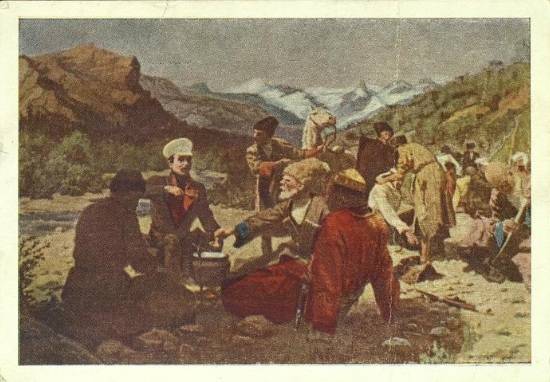
Lermontov on the Cossack outpost (postcard issued for the anniversary of the poet)
Apparently, the memories of a duel with Barant and Lermontov’s verse “Death of a Poet” were still alive at court, in which the officer walked heartily through Pushkin’s klevreta and frank admirers of European countries. Even at the first presentation by General Galafeyev of Lermontov to the award for the battle of Valerik, the emperor not only did not satisfy him, but even became indignant, I quote, "that lieutenant Lermontov was not in his regiment". This is true, because all the time in the Caucasus, Lermontov was officially part of the famous Tengin regiment. In addition, the emperor added the requirement: "... so that the lieutenant Lermontov would certainly be present at the front, and so that the authorities would not dare to remove him from his front service in his regiment under any pretext." Of course, the concept of "front" in this case had a slightly different meaning. Fortunately, this requirement, thanks to the clerical red tape, will drive Lermontov to the barracks much later.
In addition, while Lermontov and his “abreks” were running across the Caucasus under enemy bullets, they did not forget him in the capital. The wife of the French ambassador, Maria Josephine de Barant, the mother of Baranta himself, because of the duel with which the imperial court sent Lermontov to the Caucasus, wrote to her husband about Mikhail Yuryevich:
Such a sweet concern for the offspring is in fact a commonplace denunciation, since Alexander Khristoforovich Benkendorf at that time was the head of the Third Division of His Own Imperial Majesty's Chancellery. Simply put, Maria Josephine asked her husband to pry the Russian officer to the head of the political police himself so that he would restrict Lermontov’s freedom.
20 on November, when the first snow began to fly, and the passes were already put on extra white caps and therefore were extremely difficult to reach, the Chechen detachment completed the expedition and returned to Grozny. The detachment was dissolved during the winter bad weather, and Lermontov rushed to Stavropol. The lieutenant was in the most melancholic mood, in green melancholy. It is no secret that the poet has long sought a desperate heroism to deserve his resignation in order to do his favorite poetry and literature in general. But these hopes were melting away every day, because even ideas for awards went on the shelf time after time. Ahead of him was the meeting of the last New Year and Christmas in his life. In 1841, his life is tragically interrupted.
To be continued ...
- Eastern wind
- Mikhail Lermontov. Combat officer. Part of 3
Mikhail Lermontov. Combat officer. Part of 2
Mikhail Lermontov. Combat officer. Part of 1
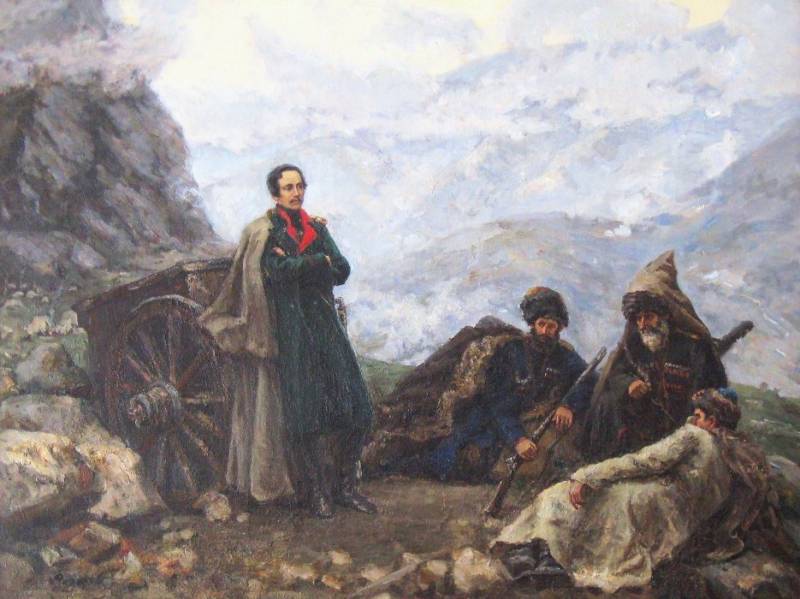
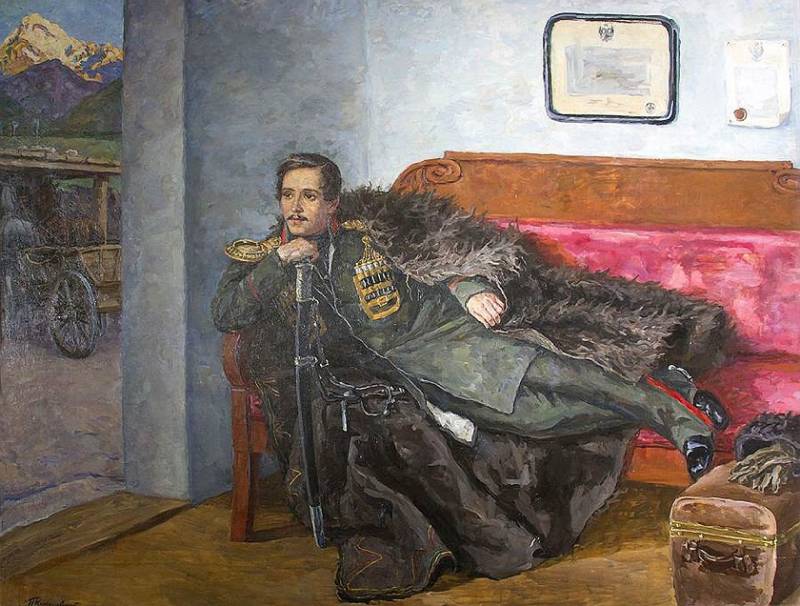
Information